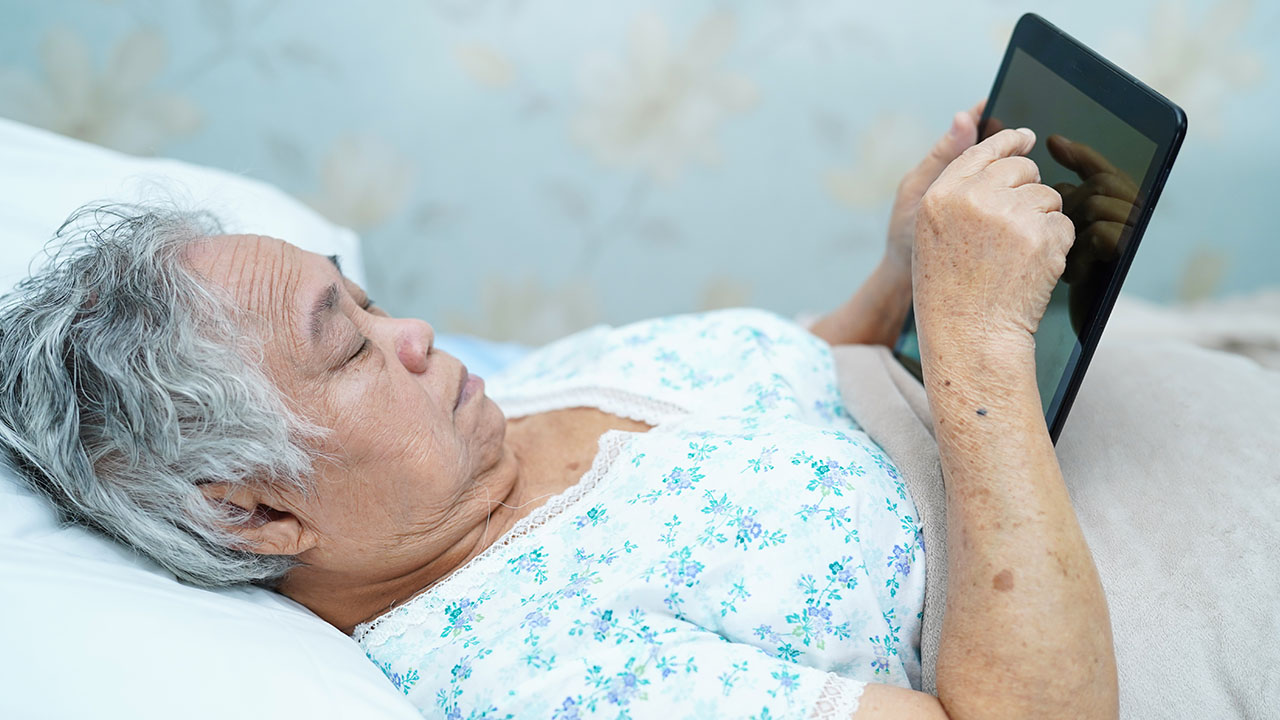Holiday or anytime gift ideas for a cancer patient

When someone we care about is diagnosed with cancer, many of us want to help but few know how. The patient may feel embarrassed to tell well-meaning family and friends what he or she could really use, and if this is a new experience, he or she may not even know what to suggest. The holidays are the perfect time to give a gift or perform an act of service. We've compiled a list of useful and meaningful gift ideas for the holidays, or any time of year, for that special cancer patient in your life.
A blanket. Hospitals are known for being chilly, and even though most infusion rooms (where chemotherapy is administered) supply blankets, it may be even more comforting to have your own soft, velvety covering gifted by someone special. Also consider covers made from other comfortable fabrics, like a jersey knit. A breast cancer patient at our Atlanta hospital told us that her blanket was a source of comfort when she was restless or cold, both at home and in the hospital.
Port pillow. To avoid repeated needle sticks during chemotherapy, many patients have a port implanted under their skin, usually on the chest, where the drugs can be intravenously administered. A port pillow protects the port site from becoming irritated by a seatbelt when riding in the car. You can often find one in a hospital gift shop or on the internet, or look for internet sites that teach you how to make one yourself. A small, soft pillow to place under the arm may also help women who have had breast cancer surgery by reducing the pressure of the arm on the breast.
Silk eye mask. This simple and inexpensive gift may help the patient nap during treatment or allow him or her to sleep through the night at home or in the hospital, where noise and light may interfere with the quality and quantity of sleep. Silk masks tend to be more comfortable than those made of satin or other materials that can be hot or uncomfortable when worn for long periods. Consider adding a lavender pillow spray and wrapping the two in a pretty package with a heartfelt note.
Lounge wear. During treatment, many patients do not feel their best. Some may be in the hospital for extended stays or recuperating at home. A comfortable set of loungewear or pajamas may be a fitting gift for these occasions. When shopping, consider what limitations the patient may face when getting dressed. For example, a breast cancer patient who has had a mastectomy may have difficulty raising her arms to put on a T-shirt, so a button-down pajama top may be a better option.
Back scratcher or zipper puller. When patients are unable to raise their arms, these two items may come in handy, particularly for patients who live alone. The back scratcher may help them scratch hard-to-reach spots on their backs. Many forms of the zipper puller have been created, with each allowing the patient to reach back and zip up a dress or top without assistance.
Insulated water bottle. Since patients undergoing chemotherapy need to stay hydrated, a quality water bottle that keeps liquids cold or hot for extended periods may be particularly useful. Consider getting the bottle monogrammed or ordering one with your loved one's favorite sports team, hobby or color.
Gift cards. Gift cards are helpful in most any situation. Some of the most frequently requested gift cards are for restaurants, meal delivery and car services for patients who cannot drive. You can also buy gift cards to purchase apps, such as guided meditation, or to buy favorite soundtracks, movies and audio books or even games for their tablet or smartphone. Avoid gift certificates for a manicure or pedicure, since many oncologists recommend against patients cutting their cuticles or using artificial nails during treatment. Cuts or breaks in the skin may result in an infection, which may be dangerous for cancer patients, whose immune systems are already over-taxed. Acrylic nails are also not advised during chemotherapy because bacteria may become trapped under the nail bed and cause an infection.
Kindle, iPad or other tablets. These convenient mobile devices can help your loved one pass the time during treatment by watching movies, reading books or magazines, catching up on some work or emailing friends.
Headphones. A nice pair of headphones would allow the patient to listen to music or watch a movie without being disturbed or disturbing others. This gift may be especially appreciated by those sharing a hospital room.
Adult coloring books, journals, a bible or religious or inspirational books. These can all be found online or in a hospital gift shop.
A nice scarf, hat or "chemo beanie." Many chemotherapy patients look for ways to dress their scalps after losing their hair during treatment. A colorful, stylish head covering may serve to boost their self-image while also keeping their head warm.
Compression socks. These help with arm or leg swelling while sitting for extended periods, particularly while traveling.
A tote bag. Put together a tote bag or basket of items the patient can use during chemotherapy.Include ginger chews (to help with nausea), a beanie or scarf to cover the head, coloring books, games, lip balm, hand lotion, magazines, fruit and healthy snacks, such as nuts, popcorn or hard candies. A travel toothbrush, toothpaste and alcohol-free mouthwash are nice additions to help get rid of the metallic taste chemotherapy may cause.
If you are on a budget or would rather find a gift that does not require shopping, there are other ways to show you care without spending money, including:
Offer your help. Walk the dog, sweep the floor, do the dishes. Most cancer treatments leave patients fatigued at one point or another. These simple tasks can be exhausting when you're not feeling well. Offer specific services, since many patients are too embarrassed to ask someone to do their housework or run their errands. Tell your loved one you're coming over to do laundry, go grocery shopping or clean the house, so he or she doesn't have to be the one to make the suggestion.
Organize a sign-up sheet for the patient's friends, neighbors and co-workers. Categories can include dropping off meals, dog-walking, laundry, housecleaning, driving the patient to treatment and appointments and carpools for the patient's children.
Send a card or note. This small gesture may go a long way toward comforting your loved one. Patients report that knowing someone is thinking of them and sending positive energy may be especially comforting on days they are feeling low. One patient told us one of her favorite gifts was an inspirational word jar put together by her co-workers. Her colleagues wrote uplifting messages and placed them in a beautifully decorated jar. She began each day by pulling out a message, and she still uses the inspiration jar today, well after her treatment has ended.








